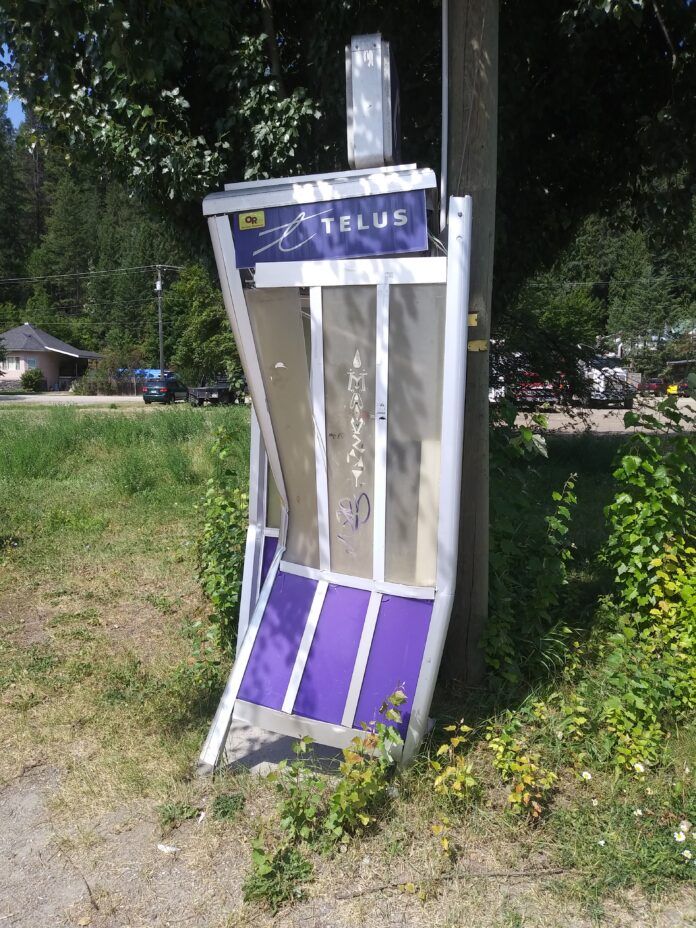Dropping quarters to make a call will soon be a thing of the past, as the end of the payphone era in the West Kootenay draws near.
Only a handful of payphones remain in service in the region and those ones won’t be around much longer either, according to Telus.
“There’s an incredible nostalgia associated with payphones,” general manager Brian Bettis says. “Everybody has a payphone experience. When I was a kid, my mom would give me a quarter before she dropped me off at the mall. That’s how I would call her to get home.”
Bettis says for generations payphones have been “a staple of the local economy and connected people to the things they care about the most.”
He says phasing them out is not something they necessarily intended, but reflects a broader phenomenon. With most of us now carrying cell phones, payphone use has become “very infrequent.”
The few remaining phones make less than $5 a year. But that’s not the primary reason they are disappearing.
Their lack of use means it has become hard to find replacement parts. Internationally, companies that made them are closing their facilities. On top of that, fewer and fewer people know how to fix them.
“Forty years ago you could find payphone technicians,” Bettis says. “Now that skill-set, along with the supply capability, has really dwindled. It’s become difficult to keep them operating.”
Already there are no longer any payphones in service in Creston, Greater Trail, Castlegar, Grand Forks, Midway, or Slocan. (One at the Trail Memorial Centre was removed this year because it was an ongoing source of prank calls.)
The few survivors can be found Nelson and Greenwood, each with one, and Kaslo, which is now the area’s payphone capital with two.
Bettis says the company has retired payphones in areas where they are rarely used and there is cell coverage. The remaining ones (Telus estimates it has 500 or fewer left across B.C.) are mainly in areas with more limited coverage.
But even those places will eventually see the demise of their traditional payphones.
Telus insists that although the devices are disappearing, changing technology means there will be more opportunity for people to use their networks, not fewer.
For those who relied on payphones or can’t or don’t want to buy a cell phone, Telus offers programs to make handsets and phone plans available at low or no cost.
Further, Bettis says when a payphone is removed from a business, they have arranged for free local calls through those businesses. So if a payphone was outside a gas station, you can now go inside and expect to use their phone.
But Bettis says there isn’t much danger the final payphones will end up on scrapheaps.
“People are passionate about them. They have deep, ingrained connections in our communities. And why wouldn’t they? There’s an immense desire to display these devices.”
Telus is making them available to museums who would like to have them, and failing that, anyone else who wants to showcase a piece of history. You can contact them at [email protected].
In addition, for every community where a phone is permanently taken off the hook, the company is donating $1,000 to the Telus Friendly Future Foundation, a charity focused on youth programs.




